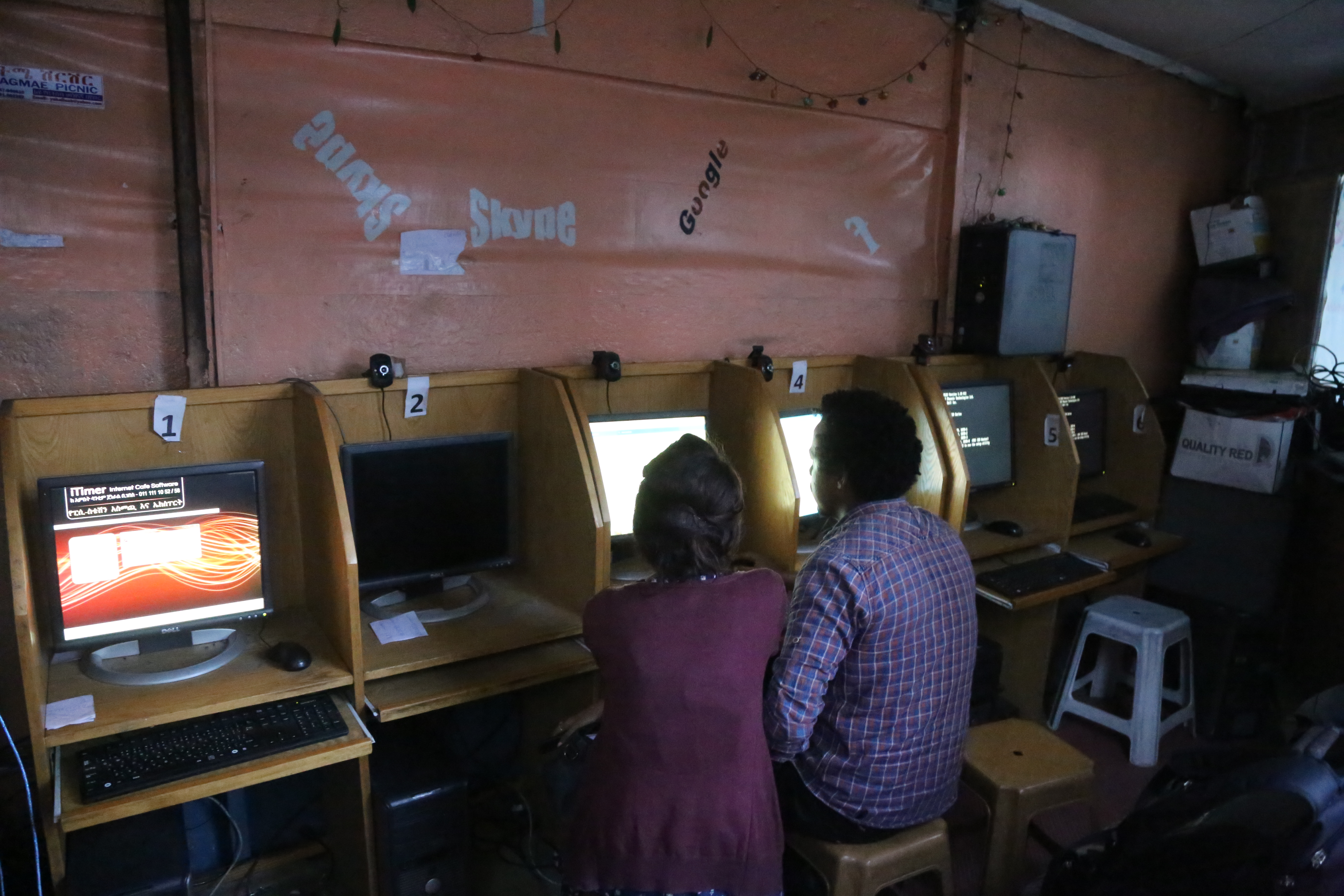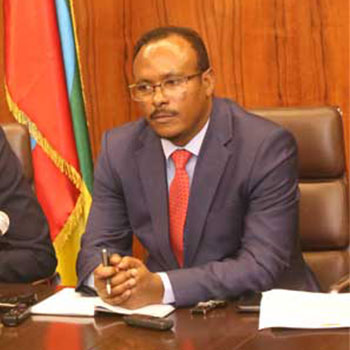
Agenda | Nov 27,2018
Ethio telecom, the state telecom giant, has begun the process of replacing its business support system, which manages customer and billing information. The new components will enable the company to host 80 million customers, 15pc more than its existing capacity.
The new business support system, which industry experts call ''the heart of the telecom operators' business,'' will replace the seven-year-old existing system that has the capacity to accommodate 68 million subscribers. It enables the company to gain customer insight, compile real-time subscriptions and introduce new revenue-generating streams.
For the replacement of the components, the management of the company is currently negotiating with suppliers, according to CEO Frehiwot Tamiru.
The company is changing the system to break into a competitive industry that is in the process of liberalisation as well as replacing the software that has already reached the end of its useful life. The hardware of the system will also complete its lifetime this coming December.
"It's about our survival," said Frehiwot. "Even a telecom operator with 100pc coverage is nothing with an outdated business support system."
Business support systems incorporate different segments including customer relationship management (CRM); billing; product management to offer cross-product discounts, pricing and managing products related to one another; and order management.
The existing system was installed during the Telecom Expansion Project (TEP) that was launched in 2013 through vendor financing. TEP included improving network service quality, increasing coverage and capacity on mobile service, building infrastructure with the latest technology and enhancing the information system domain of the company.
Along with replacing the business support system, the company is working on network and infrastructure expansion. It is expanding the wireless, fixed-line, power and transport network infrastructures. The expansion is expected to enable the company to host an additional 5.2 million new customers.
"It will enable us to be compete in the market," said Frehiwot, "and generate revenue by leasing and renting infrastructure to companies that join the sector."
Ethio telecom is also in the process of building 842 new tower sites in the country. Of these, 150 will be installed in the capital to expand the advanced 4G network. The towers will be added to the existing 7,100 towers. It also targeted the installation of 400Km of metro fibre and 2,000Km of backbone fiber-optic cable. Currently, Ethio telecom owns 23,000Km of fiber-optic cable.
The company is working on the expansion of the broadband network, intending to expand its customer base by 215pc to 669,400 users. For this, it is upgrading and swapping 910 multi-service access gateways (MSAG), devises that connect customers' telephone lines to the core network to provide telephone and broadband services. It is also installing 202 new MSAG devices.
It is good that the company did not sit and wait until the government completes the liberalisation process, according to Dawit Bekele (PhD), regional vice president for Africa at the Internet Society, a nonprofit organisation.
"It's a commendable move that the company is getting ready and bracing itself for competition," said Dawit, who believes that the liberalisation of the industry will bring quality since there will be competition among the operators.
Ethio telecom is finalising an assessment that shows that its infrastructure can accommodate one more operator with a little reinforcement, according to Frehiwot.
Last month the Ethiopian Communications Authority, the primary regulatory body, drafted a directive that compels telecom operators to share their infrastructure and give collocation service to newly joining operators. The Authority estimates that an additional 40,000Km to 45,000Km of fiber-optic cable and 7,000 towers are needed to accommodate the new companies that are going to join the industry.
This does not include infrastructure for 5G networks, according to Balcha Reba, director-general of the Authority.
However, the two parties are at loggerheads over the opening of the sector to new infrastructure development companies or "infracos" as they are known. Ethio telecom argues that the industry should be closed to infraco companies. The Authority, on the other hand, argues that since Ethio telecom's network infrastructure capacity is not there yet, infraco companies should join the industry to help create a favourable environment for the new operators.
Dawit, the expert, also strongly opposes the ongoing lobbying from Ethio telecom to ban infracos from joining the market, saying that it will undermine the liberalisation process and can potentially push away the new companies that are going to join the market.
"The government should intervene by supporting the Authority in this regard," he said. "The regulatory body should remain autonomous and strong in order that the new companies that join the sector will have confidence in the country's telecom sector."
With the expansion plan, the company is working on introducing voice over LTE (VoLTE), a network that provides high-speed wireless communication between telecom operators while using third-party networks. So as not to face problems while sharing infrastructure, the company is working on power availability by investing in generators, power batteries, and increasing solar site solutions from 21pc to 32pc.
It is also upgrading its transmission by replacing its IP network, which will soon come to the end of its expected lifetime, upgrading its international gateway, and expanding its data centre to provide a collocation service.
What makes this investment different from previous iterations is that the company will do so using cash. The management is negotiating with the service providers to pay in installments, according to Frehiwot. During previous expansion projects, but mainly the Next Generation Network and Telecom Expansion projects, Ethio telecom carried out the upgrades by way of a 2.3-billion-dollar loan from China.
PUBLISHED ON
[ VOL
, NO
]

Fortune News | Aug 08,2020

Fortune News | Mar 11,2023

Radar | Oct 02,2021

Radar |

Fortune News | Oct 17,2020

Dec 22 , 2024 . By TIZITA SHEWAFERAW
Charged with transforming colossal state-owned enterprises into modern and competitiv...

Aug 18 , 2024 . By AKSAH ITALO
Although predictable Yonas Zerihun's job in the ride-hailing service is not immune to...

Jul 28 , 2024 . By TIZITA SHEWAFERAW
Unhabitual, perhaps too many, Samuel Gebreyohannes, 38, used to occasionally enjoy a couple of beers at breakfast. However, he recently swit...

Jul 13 , 2024 . By AKSAH ITALO
Investors who rely on tractors, trucks, and field vehicles for commuting, transporting commodities, and f...

Oct 18 , 2025
The political establishment, notably the ruling party and its top brass, has become p...

Oct 11 , 2025
Ladislas Farago, a roving Associated Press (AP) correspondent, arrived in Ethiopia in...

Oct 4 , 2025
Eyob Tekalegn (PhD) had been in the Governor's chair for only weeks when, on Septembe...

Sep 27 , 2025
Four years into an experiment with “shock therapy” in education, the national moo...